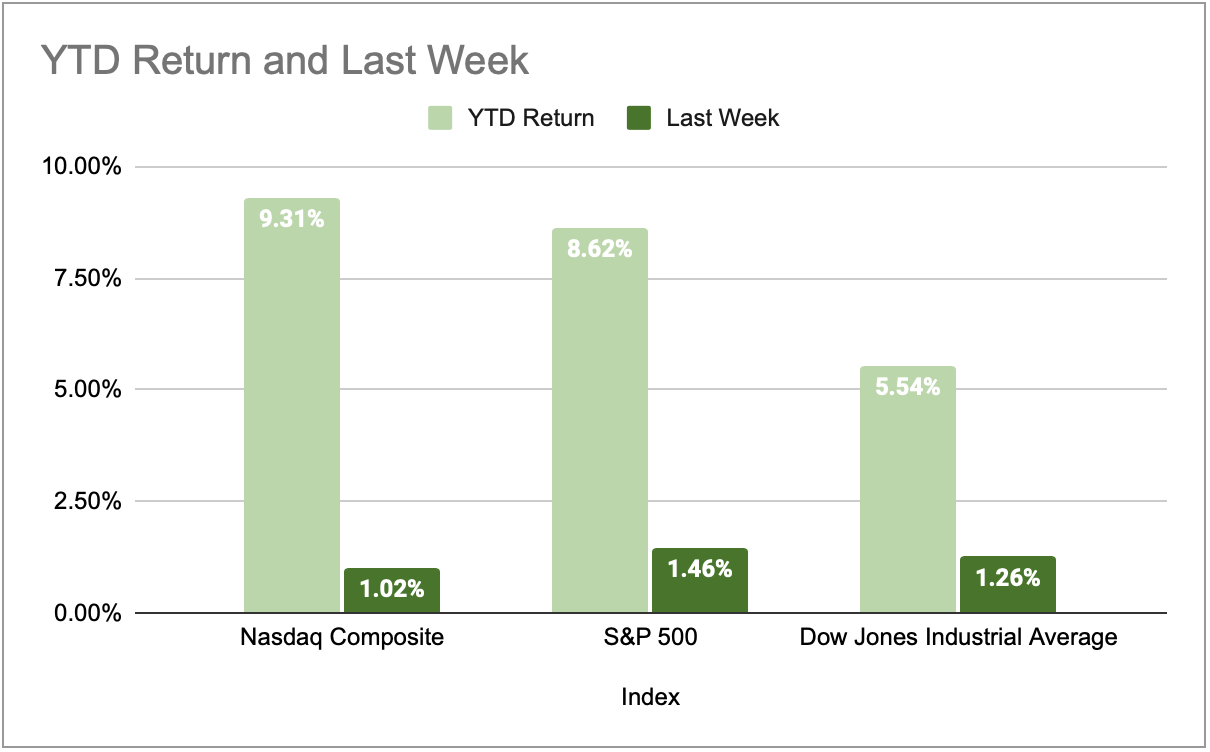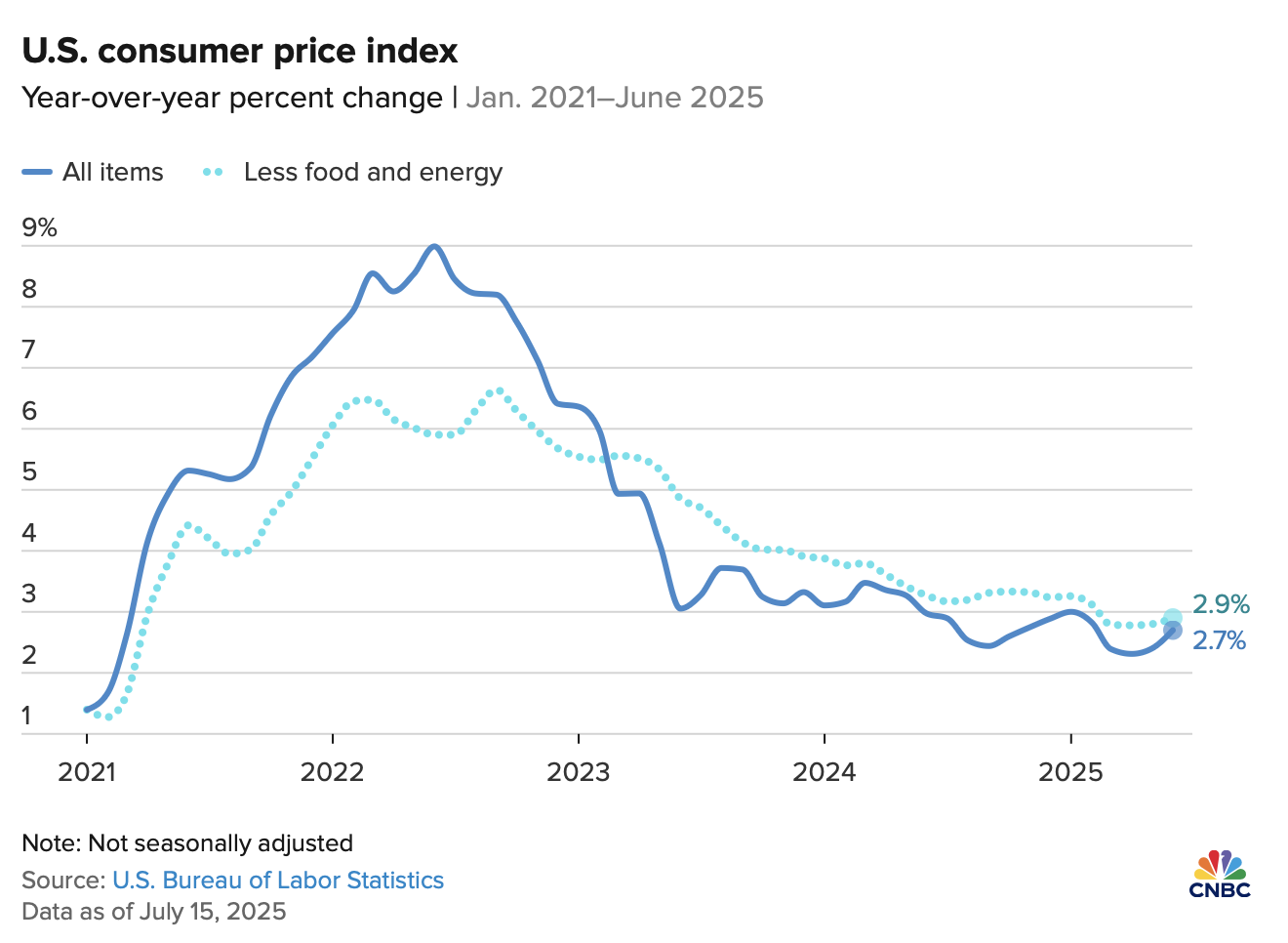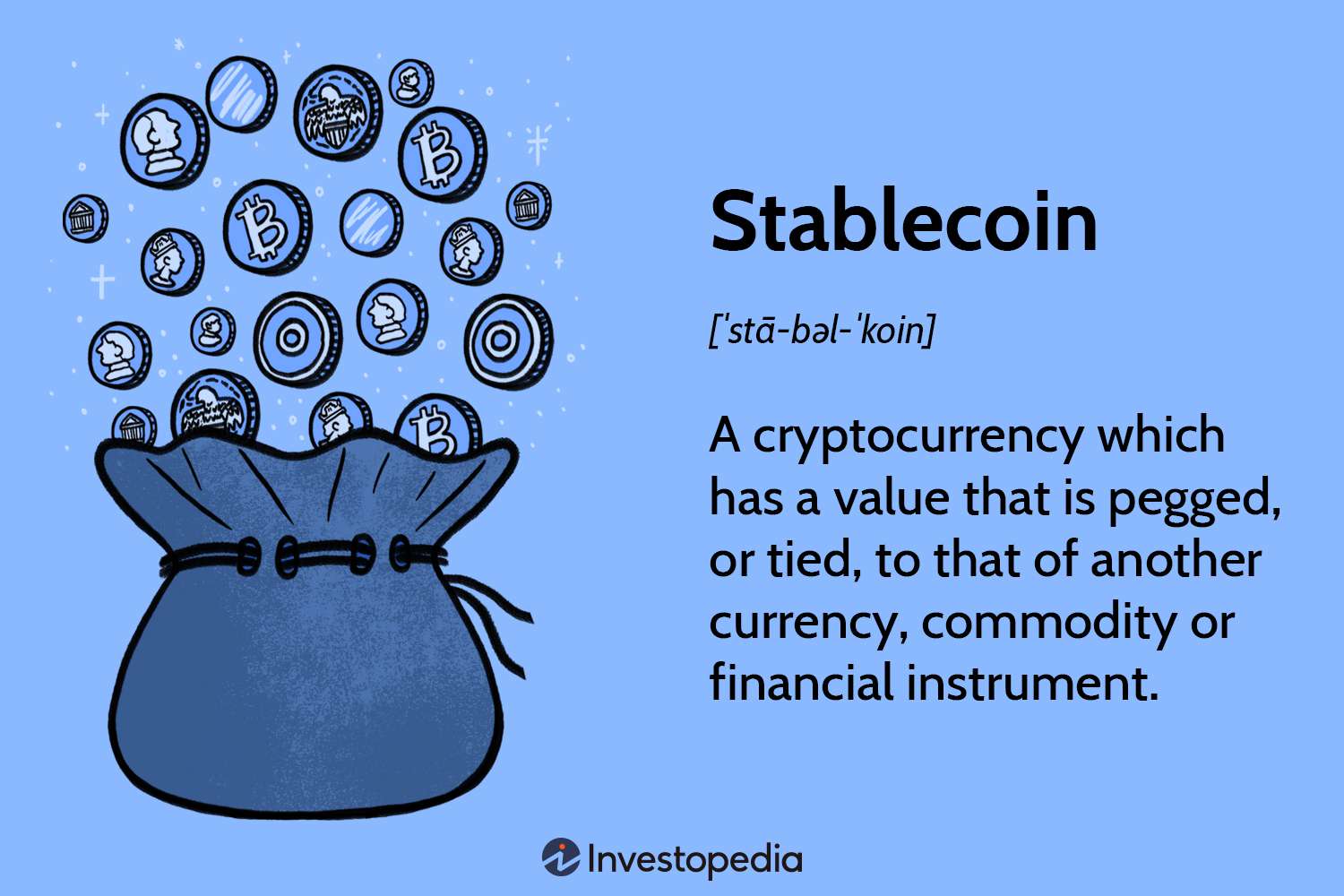🌀 Calm Before the Storm
Good evening investors!
This week feels like the calm before the storm. Major tariffs are set to go into effect this week on August 1st, and it is clear that we still have yet to see what long-term tariff rates will be, and what impact they will have on the global economy.
Regardless, markets are upbeat. As you'll read below, stocks are hitting all-time highs despite concerning economic data such as persistently high inflation. At the same time, corporate investment and financial deregulation are in full swing, including the recent passage of the GENIUS Act by Congress.
For now we are in the calm before the storm, and it is uncertain what kind of storm we are looking forward to. A bull market fueled by investment and deregulation? Or the doldrums of loose fiscal policy, high inflation, and unfulfilled promises of AI-driven growth and prosperity?
Only one way to find out...
-Brian
In Today's Issue:
🥇 The stock market reaches new all-time highs
🥈 Inflation just will not go away
🥉 An Act of GENIUS
Markets
Record Setting

Last week, the S&P 500 rose 1.46%, notching a new all-time high of 6,395.82 for the index. Year to date, America's 500 largest companies by market capitalization are up 8.62%. The recent moves higher have followed optimism around global trade, with a trade deal with Japan announced this past week.
However, the stock market is not the economy. Despite extended uncertainty around global trade, the largest public companies are well equipped to continue profiting whether tariff rates are 15% or 50%. Smaller public and private companies are not so fortunate.
For example the Russell 3000 index is a much broader swath of 3,000 public U.S.-based companies. These stocks can further be divded into 1,000 large cap stocks (aka Russell 1000), and the remaining 2,000 small cap stocks (aka Russell 2000). Year to date, the Russell 1000 is up 8.56% while the Russell 2000 shows a much more modest 1.39% gain, highlighting the differing impacts of the 2025 Economy across bigger and smaller companies.
Inflation
Higher for Longer

Speaking of the economy, inflation seems to be sticking around close to 3%. In June, the index rose 0.3% compared to the prior month, and 2.7% compared to last year. Core inflation, which strips out volatile categories like food and energy, rose 2.9% year over year. While it was expected that tariffs would have a much bigger impact on the cost of everyday items, the data seems fairly mixed so far. Apparels and furniture rose for example, while auto prices fell.
The reality is that while tariffs, as they are currently being implemented, will not lead to double digit inflation like we saw in 2022, they certainly aren't helping to bring prices back down the the 2% annual increase that the Federal Reserve would like to see. So long as inflation remains significantly above that 2% benchmark, interest rates will remain elevated.
It should be noted that a 3% inflation rate by itself will not destroy an economy. But if not addressed, either through stricter monetary or fiscal policy, the value of the dollars in your and my wallets will continue to dwindle. While the President is currently calling for lower interest rates, the Federal Reserve may end up in a position where they actually need to raise rates.
Crypto
An Act of GENIUS

This week, Congress signed the so-called GENIUS Act into law. This bill enables government recognition and regulation of stablecoins. These are a special type of cryptocurrency designed to track the value of an underlying currency, in this case the U.S. dollar. Banks and institutions will be able to issue stablecoins to consumers or investors, and these buyers can rest assured that the bank is holding $1 of cash in reserve for every $1 of stablecoin that they issue.
However, that's about as far as this "innovative" bill goes, and it is unclear what the economic benefit is to clearing the way for stablecoins. Cryptocurrency was originally touted as a decentralized currency, with the theoretical benefit being that holders of crypto don't need to worry about the U.S. Dollar or the country's monetary policy. Paradoxically enough, this vision is hard to achieve without broad recognition, and the industry has seeked to win over the hearts of Congress and financial institutions for this broad recognition. Which in turn has lead cryptocurrency nearer towards a "centralized" future. Go figure.
Responses